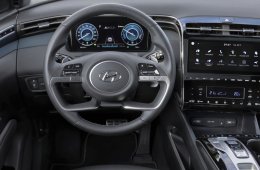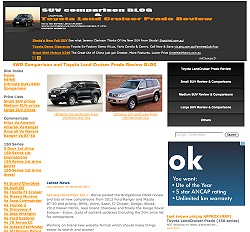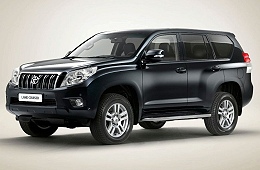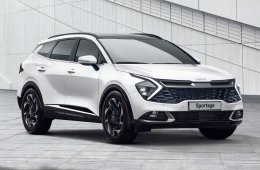|
|
VS |
|
Welcome to the Hyundai Tucson vs Kia Sportage comparison for 2022. As always the two shared models have been released and it’s time for a comparison. We always preferred the Kia Sportage due to being a better overall package than the Hyundai Tucson and more than interested to see how the two compare.
Hyundai Tucson vs Kia Sportage exterior: Firstly neither brand has any sort of styling pedigree! So they can look completely different from one generation to another. The Tucson has dropped conservative lines for a more and self proclaimed futuristic design. We don’t think it is, rather just an update on what we would call traditional South Korean automotive design aesthetic aka slightly awkward. Sure it is overall less controversial than the Bangle BMWs but that was because BMW had a well established brand image. Hyundai does not so the arguably ‘brave design’ is purely to stand out. Mind you it’s ‘differences’ have faded over time. We believe the superseded Sportage was one of better looking SUVs despite being largely a facelift on the original model release. The new Sportage continues being the better looker although a little derivative from other brands like Honda.
Hyundai Tucson vs Kia Sportage interior: The Kia Sportage has the better interior – easily. The Sportage is a more cohesive design and despite having the same materials feels nicer to be in. Hyundai Tucson looks and feel like a parts bin.
Hyundai Tucson vs Kia Sportage engines and technology: With the same engine and safety systems dependent on model grade means both are essentially identical. Which is better depends on sales promotion.
Hyundai Tucson vs Kia Sportage drive : N/A
The conclusion to the Hyundai Tucson vs Kia Sportage comparison is the Sportage. The Sportage wins by doing more to differentiate it from the donor Tucson. It’s a comparison of looks really – and in the end we think the less awkward exterior design of the Sportage and better interior ambience is a winner.
| Hyundai Tucson | Kia Sportage |
 |
 |
| Engines | |
| 4 Cylinder Petrol 2 Litre (1999cc) DOHC EFI VVT Claimed 115Kw @ 6200RPM Claimed 192Nm @ 4000RPM |
4 Cylinder Petrol 2 Litre (1999cc) DOHC EFI VVT Claimed 115Kw @ 6200RPM Claimed 192Nm @ 4000RPM |
| 4 Cylinder Turbo Petrol 1.6 Litre (1598cc) DOHC EFI VVT Claimed 132Kw @ 5500RPM Claimed 265Nm @ 1500RPM |
4 Cylinder Turbo Petrol 1.6 Litre (1598cc) DOHC EFI VVT Claimed 132Kw @ 5500RPM Claimed 265Nm @ 1500RPM |
| 4 Cylinder Diesel 2.0 Litre (1995cc) DI CR Turbo DOHC EFI Claimed 137Kw @ 4000RPM Claimed 416Nm @ 2000RPM |
4 Cylinder Diesel 2.0 Litre (1995cc) DI CR Turbo DOHC EFI Claimed 137Kw @ 4000RPM Claimed 416Nm @ 2000RPM |
| Weight | |
| Kerb weight FROM 1556Kg Towing capacity up to 1600Kg |
Kerb weight FROM 1500Kg Towing capacity up to 1600Kg |
| Fuel capacity & consumption | |
| Up to 54 litres IL4 2.0 Petrol 8.1 litres per 100km IL4 2.0 Turbo Petrol 7.2 litres per 100km |
Up to 54 litres IL4 2.0 Petrol 8.1 litres per 100km IL4 2.0 Turbo Petrol 7.2 litres per 100km IL4 2.0 Turbo Diesel 6.3 litres per 100km |
| Other specifications | |
| 6spd manual 7 DCT Auto 8 speed Auto Overall height/width 1680/1865 Overall length/wheelbase 4630/2755 4WD system: On demand AWD or 2WD ANCAP Safety: 5/5 |
6spd manual 7 DCT Auto 8 speed Auto Overall height/width 1680/1865 Overall length/wheelbase 4660/2775 4WD system: On demand AWD or 2WD ANCAP Safety: 5/5 |
| Capability | |
| Angle of: (degrees) Approach ?? Departure ?? Breakover ?? Minimum ground clearance ??mm Water Fording depth ??mm Max |
Angle of: (degrees) Approach ?? Departure ?? Breakover ?? Min ground clearance ??mm Water Fording depth ??mm Max |
| Performance | |
| Pricing | |
| 2021 $34,889 – $50,000 2016 $27,990 – 45,490 AUD |
2021 $28,990 – 49,990 AUD 2016 $28,990 – 45,990 AUD |
| *Specs and pricing change due to model grade and configuration or options. Always check with the dealer for up to date pricing, specifications, on-road costs, accessories and specials etc.. everything as usual is subject to change! | |





